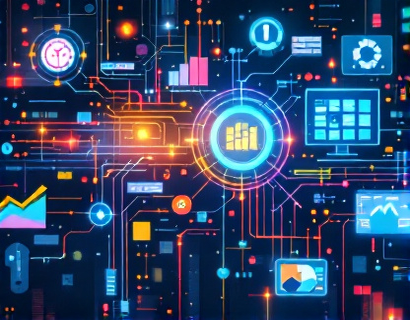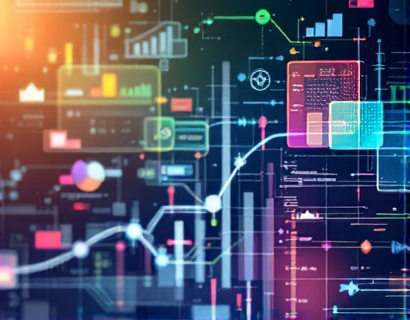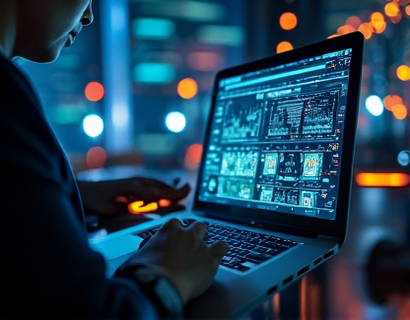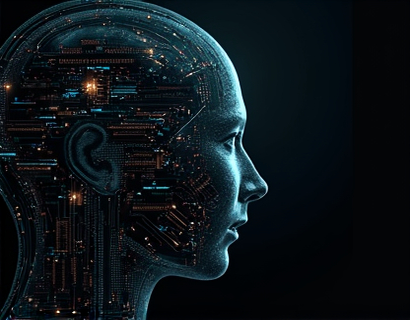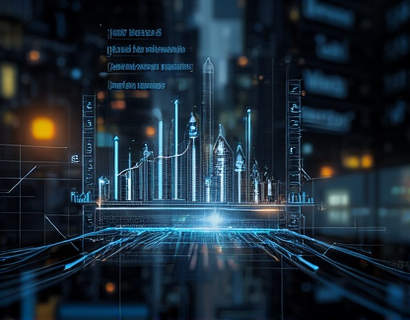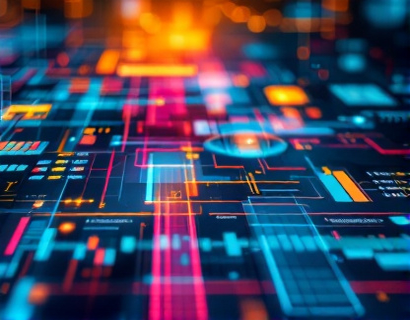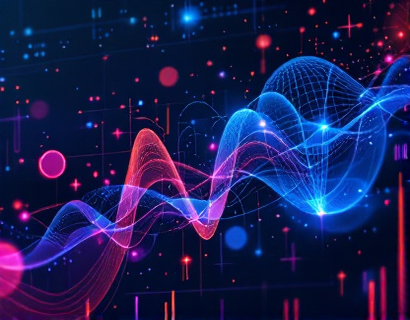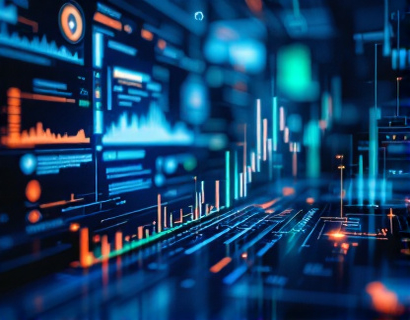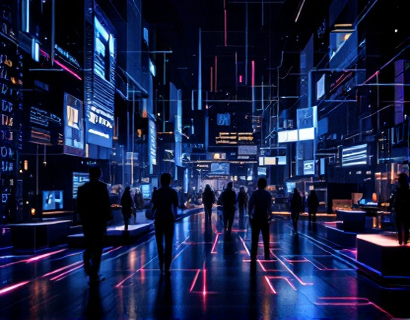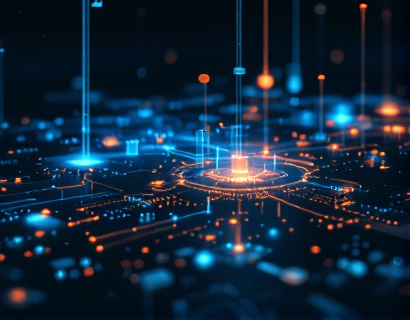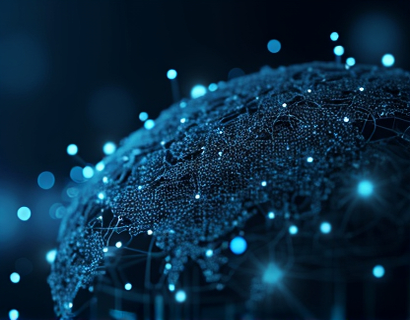Unlocking Next-Gen Ecosystem Engagement Through AI and Crypto Integration
The intersection of artificial intelligence and cryptocurrency is paving the way for a new era of digital ecosystem engagement. This transformative combination is not just about merging two cutting-edge technologies but about creating a more intuitive, secure, and rewarding experience for users. As we delve into this topic, we will explore how AI and crypto are synergistically enhancing user interaction, security, and value creation within digital ecosystems. This article aims to provide tech enthusiasts and investors with a comprehensive understanding of the current landscape and future potential of this integration.
Understanding the Basics: AI and Cryptocurrency
To fully appreciate the impact of integrating AI with cryptocurrency, it's essential to first understand the fundamentals of both technologies. Artificial intelligence, a branch of computer science, focuses on creating systems that can perform tasks requiring human intelligence, such as learning, reasoning, and problem-solving. AI technologies include machine learning, natural language processing, and computer vision, each playing a crucial role in automating and optimizing various processes.
Cryptocurrency, on the other hand, is a digital or virtual currency that uses cryptography for security and operates on a decentralized network, typically a blockchain. Bitcoin, launched in 2009, was the first and most well-known cryptocurrency, but since then, thousands of alternative coins (altcoins) and tokens have emerged, each with unique features and use cases. The decentralized nature of cryptocurrency ensures transparency, security, and reduces the need for intermediaries.
Enhancing User Engagement with AI
The integration of AI into cryptocurrency and digital ecosystems significantly enhances user engagement. One of the primary ways AI achieves this is through personalized user experiences. By analyzing vast amounts of user data, AI algorithms can predict preferences, behaviors, and needs, allowing for tailored recommendations and interactions. For instance, in cryptocurrency exchanges, AI can suggest optimal trading strategies based on a user's historical data and market trends, making the trading process more intuitive and efficient.
Moreover, AI-powered chatbots and virtual assistants are revolutionizing customer support in the crypto space. These AI-driven tools can handle a wide range of queries, from account management to complex technical issues, providing instant and accurate responses. This not only improves user satisfaction but also reduces the workload on human support teams, allowing them to focus on more critical tasks.
Security Enhancements Through AI
Security is a paramount concern in the cryptocurrency world, and AI plays a vital role in fortifying defenses against cyber threats. Machine learning algorithms can detect and mitigate fraudulent activities by identifying patterns and anomalies in transaction data. For example, AI systems can monitor real-time transactions and flag suspicious activities, such as unusual login times or locations, thereby preventing potential security breaches.
Additionally, AI can enhance the security of private keys and wallet management. By implementing biometric authentication and behavioral analysis, AI ensures that only authorized users can access sensitive information. This multi-layered security approach significantly reduces the risk of hacking and unauthorized access, providing users with greater peace of mind.
Smart Contracts and AI: A Powerful Combination
Smart contracts, self-executing contracts with the terms directly written into code, are a cornerstone of blockchain technology. When combined with AI, smart contracts become even more powerful and versatile. AI can automate the execution of smart contracts based on real-time data and conditions, ensuring that agreements are fulfilled accurately and efficiently. For instance, in supply chain management, AI-driven smart contracts can automatically trigger payments when specific delivery milestones are met, reducing delays and increasing trust among parties.
Furthermore, AI can enhance the development and deployment of smart contracts by identifying potential vulnerabilities and optimizing code for better performance. This not only streamlines the development process but also ensures that smart contracts are more secure and reliable.
Tokenization and AI-Driven Market Dynamics
Tokenization, the process of converting assets into tokens on a blockchain, is another area where AI is making a significant impact. By tokenizing assets such as real estate, art, and even intellectual property, investors gain greater liquidity and accessibility. AI algorithms can analyze market trends, assess asset value, and predict future performance, providing investors with data-driven insights to make informed decisions.
AI-driven market platforms can also facilitate more efficient trading and liquidity provision. By matching buyers and sellers based on sophisticated matching algorithms, these platforms reduce transaction costs and increase market efficiency. Additionally, AI can help in identifying emerging trends and opportunities, enabling investors to stay ahead of the curve.
Decentralized Finance (DeFi) and AI
Decentralized Finance (DeFi) is a rapidly growing sector that leverages blockchain technology to create financial services without traditional intermediaries. AI is playing a crucial role in enhancing the functionality and accessibility of DeFi platforms. For example, AI-powered lending and borrowing platforms can assess creditworthiness more accurately by analyzing a broader range of data points, including non-traditional credit history. This democratizes access to financial services and reduces the risk of default.
AI-driven portfolio management tools are another key application in DeFi. These tools use machine learning to optimize asset allocation, manage risk, and maximize returns. By continuously learning from market data and user behavior, these tools adapt to changing conditions, providing users with dynamic and effective investment strategies.
Challenges and Considerations
While the integration of AI and cryptocurrency offers numerous benefits, it also presents several challenges that need to be addressed. One of the primary concerns is the regulatory landscape. As both AI and cryptocurrency operate in relatively uncharted territories, regulatory frameworks are still evolving. Ensuring compliance with existing laws while advocating for supportive regulations is crucial for the sustainable growth of this integrated ecosystem.
Another challenge is the technical complexity involved in developing and maintaining AI-driven solutions. High-quality AI models require substantial computational resources and expertise, which can be a barrier for smaller players in the market. Collaboration and open-source initiatives can help mitigate this issue by sharing resources and knowledge.
Privacy is also a significant concern. While AI can enhance security, it also involves the collection and analysis of large amounts of personal data. Ensuring that user data is handled ethically and transparently is essential to maintain trust and compliance with data protection regulations.
Future Prospects: The Next Generation of Digital Ecosystems
Looking ahead, the integration of AI and cryptocurrency is poised to revolutionize digital ecosystems in unprecedented ways. One of the most exciting developments is the emergence of AI-powered decentralized autonomous organizations (DAOs). DAOs combine the decentralized nature of blockchain with AI-driven decision-making, enabling communities to govern and manage resources autonomously. This model has the potential to redefine how organizations operate, fostering greater transparency, efficiency, and inclusivity.
Another area of promise is the integration of AI with Internet of Things (IoT) devices in the crypto space. AI can optimize the management and interaction of IoT devices, ensuring seamless and secure communication. This synergy can lead to innovative applications in smart cities, healthcare, and industrial automation, further expanding the utility and reach of cryptocurrency and AI technologies.
Moreover, the development of more advanced AI models, such as quantum machine learning, could significantly enhance the capabilities of current AI-driven solutions. Quantum computing, with its ability to process complex calculations at unprecedented speeds, can accelerate AI algorithms, making them more powerful and efficient. This could lead to breakthroughs in areas such as cryptography, data analysis, and predictive modeling.
Conclusion
The convergence of AI and cryptocurrency is not just a technological trend but a fundamental shift in how digital ecosystems function and engage users. By leveraging the strengths of both technologies, we can create more intuitive, secure, and rewarding experiences. As the landscape continues to evolve, it is essential for stakeholders to stay informed and adapt to the changing dynamics. For tech enthusiasts and investors, this integration presents exciting opportunities to be at the forefront of a new digital revolution.






